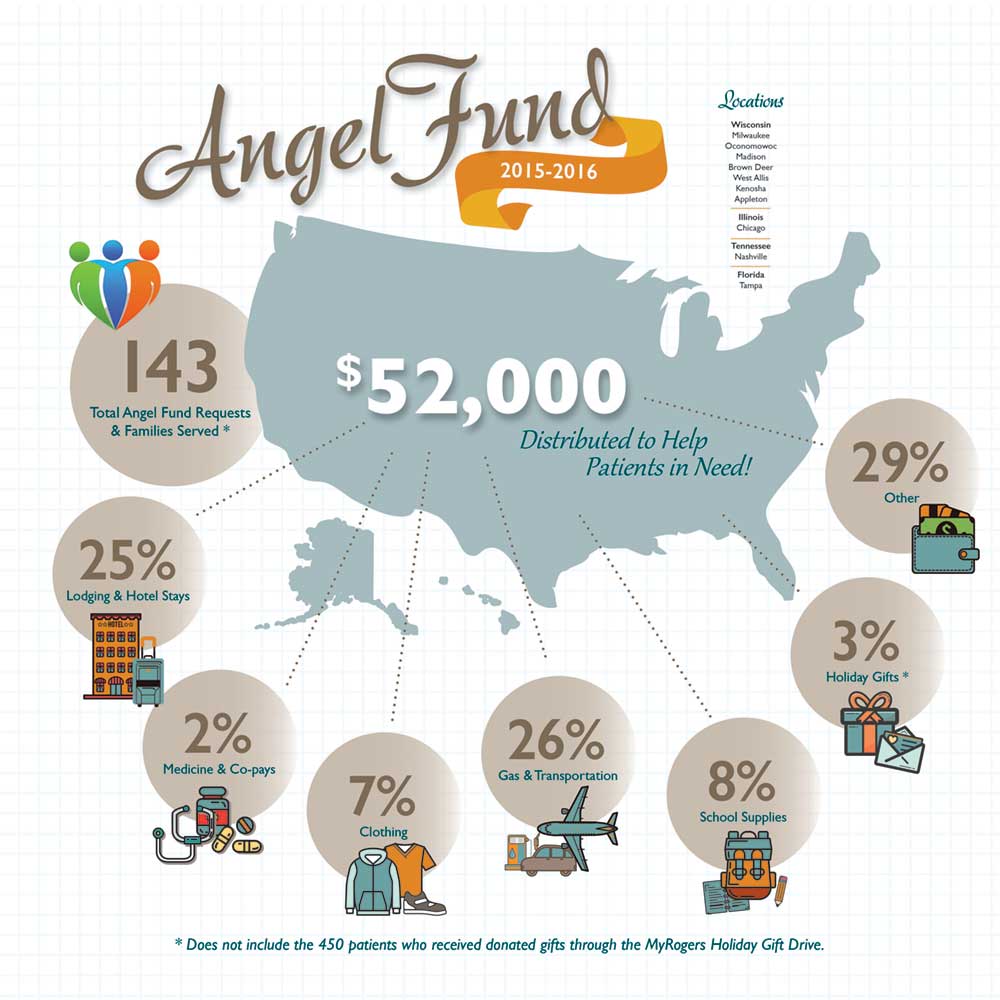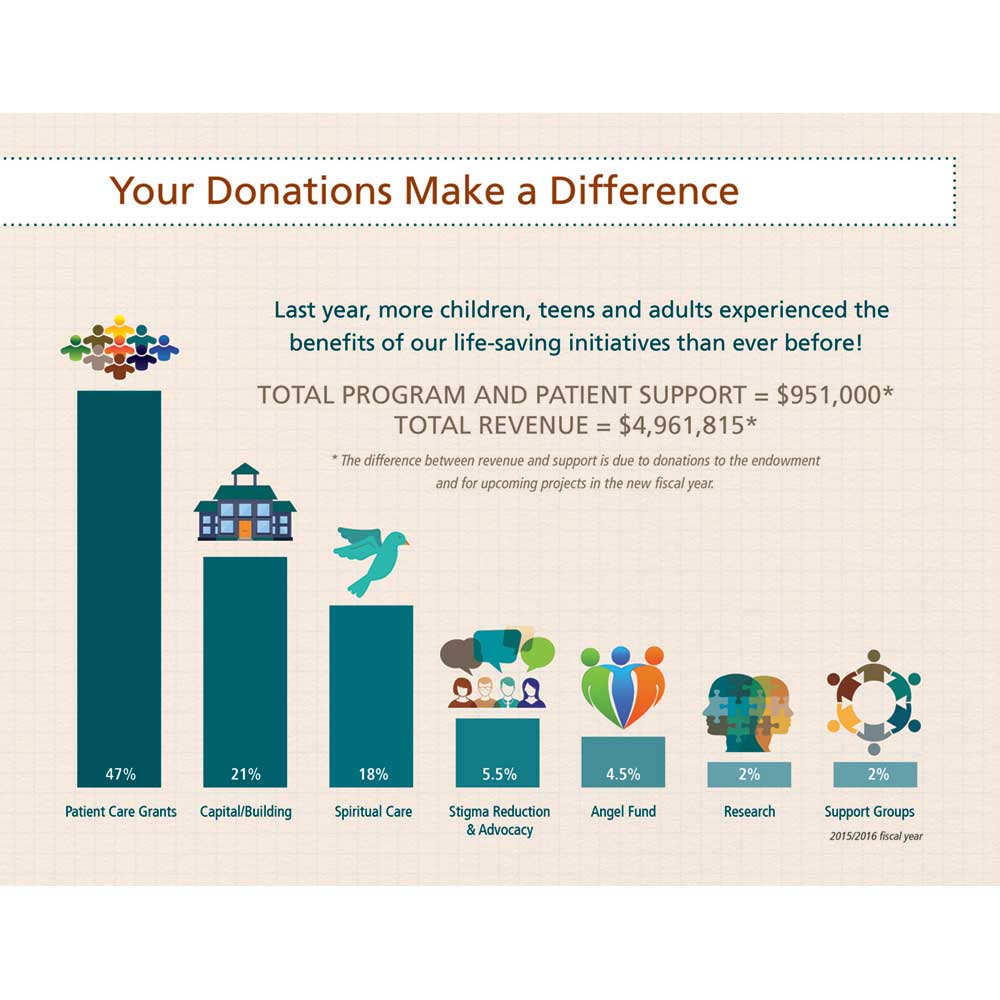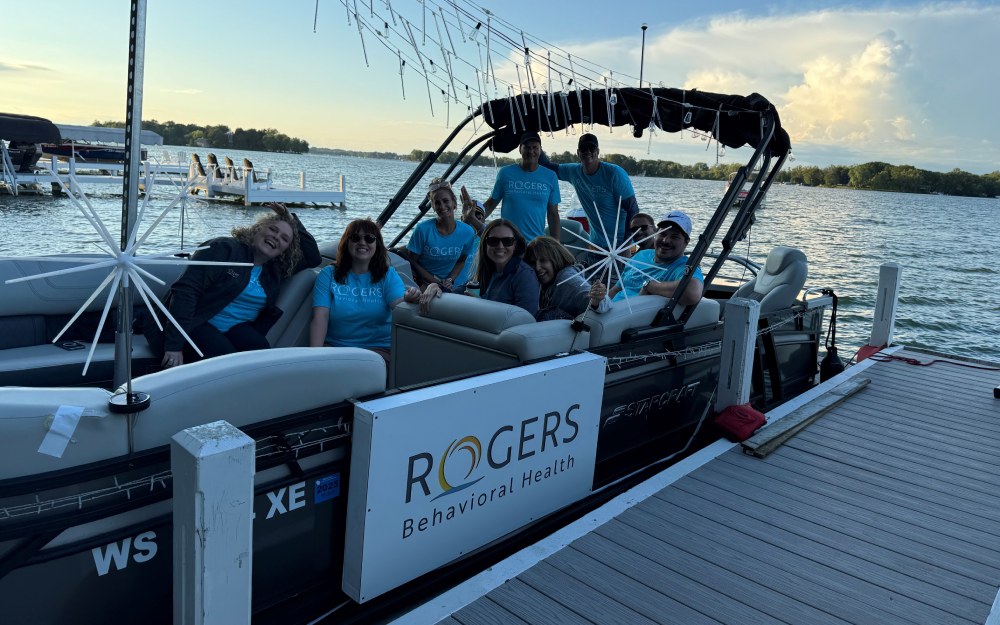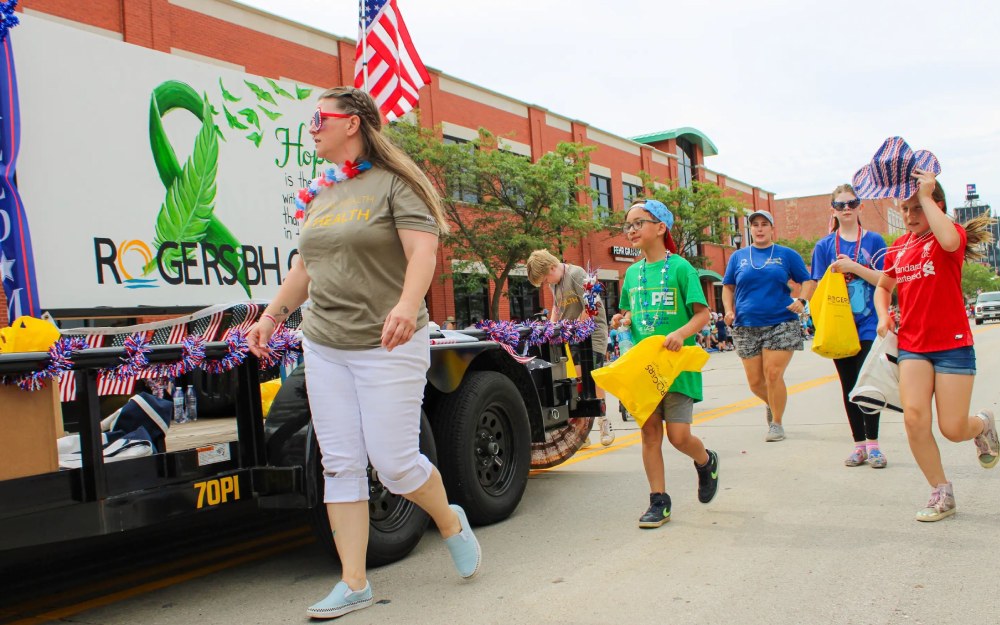
Rogers Foundation shares 2016 Impact Report
05/02/17 09:08:amResearch
- Funding for research allowed Rogers Behavioral Health to hire two research teams to study the effects of Cognitive Bias Modification (CBM) when administered via mobile application with individuals diagnosed with obsessive compulsive disorder (OCD). The studies are evaluating CMB as a stand-alone treatment tool (community-based), as well as a treatment enhancement tool (patient-based).
- Stand-alone and treatment enhancement studies will also be conducted with newly created content to test its ability to reduce symptoms of those with depression.
Support Groups
- Donor support helped launch two community-wide OCD support groups: one for those diagnosed with obsessive compulsive disorder and another for caregivers.
- An online OCD caregiver support group for Rogers’ families is also in development.
Angel Fund
- 143 Angel Fund requests were granted to support patients and families. The greatest number of requests were for gas cards/transportation and accommodations for increased accessibility to Rogers’ treatment programs.
- An additional 450 patients being treated over the holiday season received donated gifts through the MyRogers Holiday Gift Drive.
Capital/Building
- A generous donation allowed for expansion and renovation of the Kubly FOCUS Center, which houses the residential program for mood disorders in Oconomowoc, Wisconsin, increasing its capacity to 32 individuals.
Stigma Reduction/Advocacy
- With support from Rogers Foundation and Bader Philanthropies, Rogers InHealth explored the relationship between compassion fatigue and stigmatizing behaviors by people in helping professions. Special programming was developed to foster compassion resilience in a variety settings from schools to health care facilities to youth serving agencies.
- InHealth piloted the training and supervisory structure of a “peer leadership development program” for urban men in partnership with community agencies and residents. Known as Community Ambassadors for Parent Empowerment (CAPE), five fathers and grandfathers are offering parenting guidance and connection to resources in the Milwaukee community. The model is providing information to key mental health initiatives in the area.
- More than 150 adults were trained to facilitate Honest Open Proud (HOP), a program for youth that helps them increase their ability to make careful choices about if, to whom and how they talk about their mental health challenges. The program helps youth to identify the wisdom they have learned and strengths they have gained on the path of recovery.
Spiritual Care
- Supported 100% by donor funding, the spiritual care department increased patient contacts by 28% (7,505).
- In conjunction with Dr. Brad Riemann, PhD, and Mark Rossing, MD, the spiritual care department helped publish a treatment handbook for religious scrupulosity, a disorder characterized by pathological guilt about moral or religious issues. The handbook has been used to train clinical staff to more effectively serve our patients dealing with scrupulosity.
- For the first time in spiritual care history, we were able to provide tele-health services on an individual basis to patients in the Rogers’ Nashville location. Four sessions occurred in this fiscal year with plans to engage in more sessions as needed.
- Two new spirituality group sessions took hold Rogers Memorial Hospital – Brown Deer. Two of the groups occurred each week on the adult inpatient unit and have been well received.
- Reverend Betty Flannagan, M.Div., joined the spiritual care team. Betty possesses a bachelor’s degree in social work and a master’s of divinity.
Patient Care Grants
-
Special events and individual donations ensured that individuals across all Rogers Behavioral Health locations and programs received more than 1,000 days of free treatment through patient care grants.







